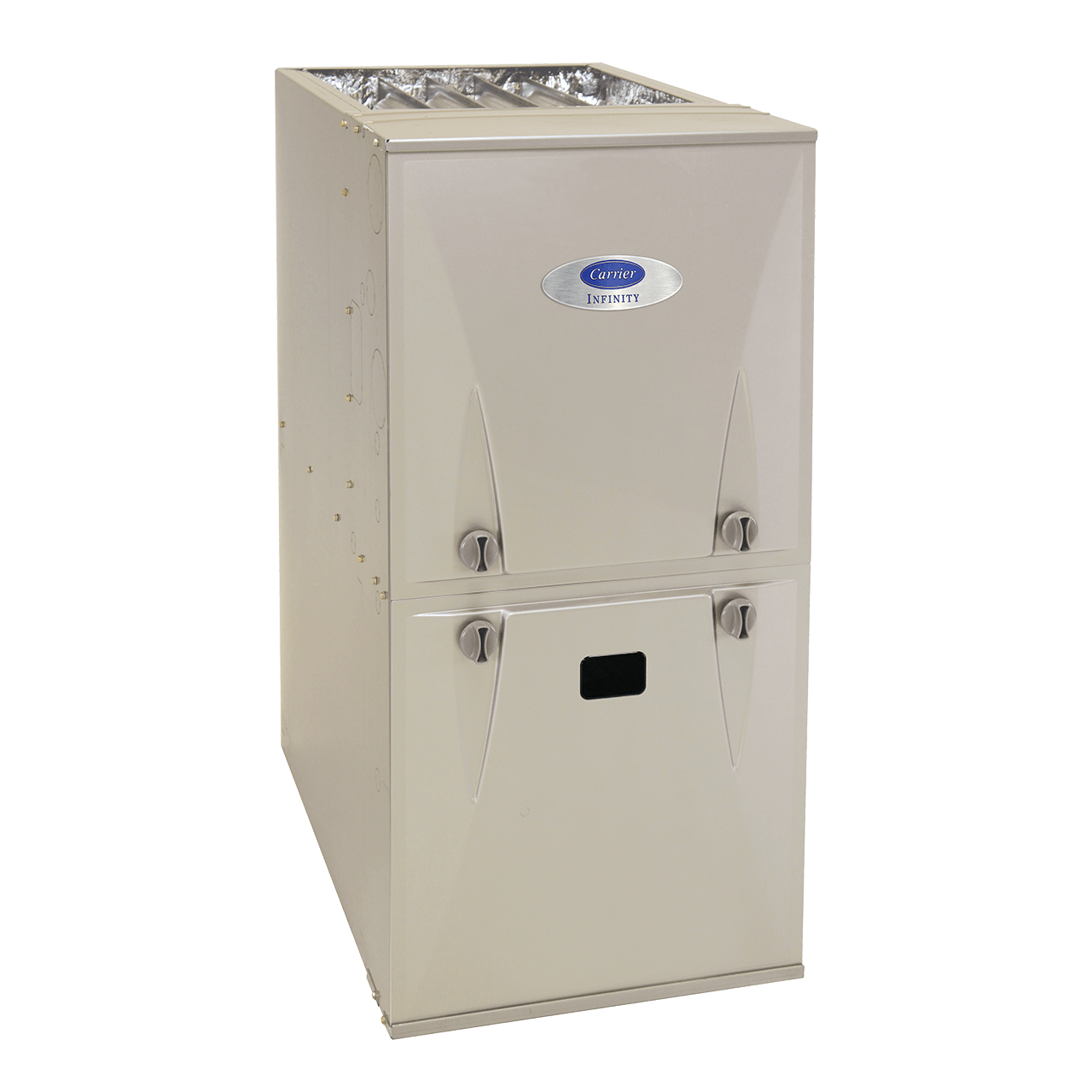Gas Furnaces
By Ryan Mayes
Gas furnaces are heating systems that use natural gas or propane to warm the home. Gas furnaces are often considered more efficient and cost-effective than other heating methods, and are a key part of the foundation for both comfort and improved indoor air quality in the home.
With a little insight into how to choose one that best fits your needs, you can expect your new heating system to provide years of dependable home comfort. Want an expert’s support? Schedule a consultation with a Carrier dealer today.
How Does a Gas Furnace Heater Work?
Unlike heat pumps, which move heat energy from an outside source to indoor air, a gas heat furnace heats air using combustion. This is why it can deliver efficient comfort when outdoor temperatures drop – times when traditional air-source heat pumps become less energy efficient.
Here’s how a gas furnace works: Natural gas is piped into the furnace where it is burned in a sealed chamber. Heat output from combustion is captured by a metal heating element called a heat exchanger inside the furnace. At the same time, a powerful fan blows cool indoor air across the heat exchanger to absorb the heat. That air circulates back to your home through ductwork to create a comfortable stream of heated air into your living spaces.
Today’s natural gas furnaces are very energy efficient. Gas furnace efficiency is expressed using AFUE ratings. AFUE , or Annual Fuel Utilization Efficiency, tells you what percentage of the natural gas used is converted to heat. Highly efficient furnaces with AFUE ratings in the mid to high nineties achieve those ratings with higher-end components like variable speed motors, “smart” control boards, and multi-stage gas valves. Currently, the minimum AFUE for a natural gas furnace is 80%, while the Carrier ® Infinity 98 gas furnace with Greenspeed® Intelligence offers up to 98.5% AFUE efficiency.
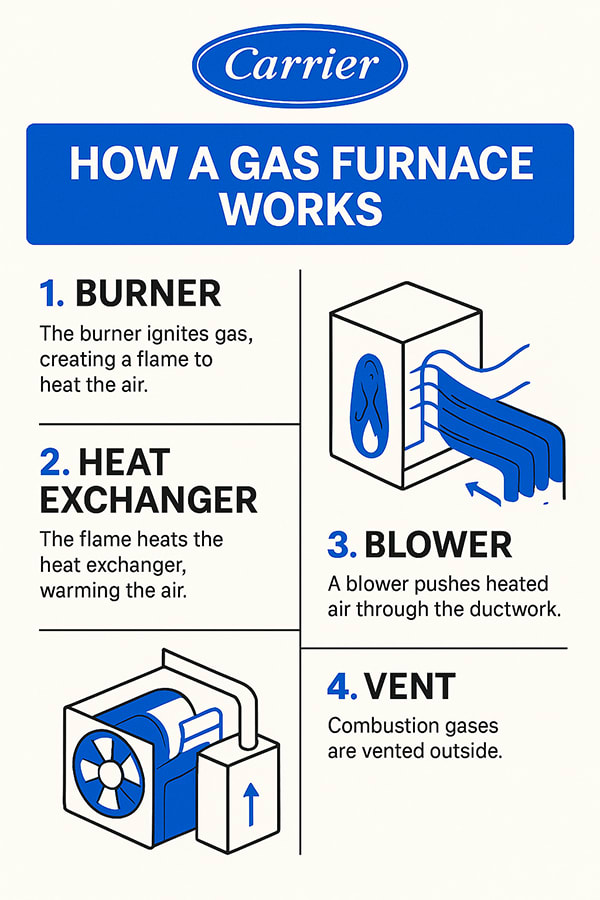
Benefits of Gas Furnaces
Upgrading to a modern gas furnace offers several advantages that go beyond just staying warm:
- Lower Operating Costs – High-efficiency furnaces use less fuel, helping you cut down on monthly heating bills and reduce overall energy costs.
- Consistent Comfort – Enjoy steady indoor temperatures and even heat distribution throughout your home, even on the coldest days.
- Cleaner Indoor Air – Modern furnaces are designed to filter out dust and particles, supporting healthier air quality for your family.
- Reliable, Safe Operation – Built with advanced safety features, today’s gas furnaces are dependable and designed to give you peace of mind.
WHAT ARE THE THREE TYPES OF GAS FURNACES?
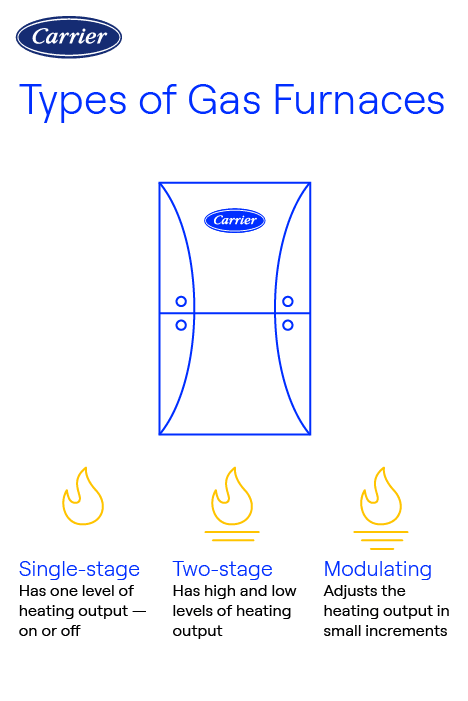 The three types of gas furnaces are single-stage, two-stage, and modulating furnaces. Single-stage furnaces operate at full capacity or not at all, which can cause fluctuations in indoor temperature. Two-stage furnaces offer two levels of heat output, enhancing comfort and efficiency by operating at a lower setting for mild days. Modulating furnaces are typically high-efficiency furnaces that adjust heat output and airflow continuously to maintain precise temperatures, offering the higher efficiency and comfort.
The three types of gas furnaces are single-stage, two-stage, and modulating furnaces. Single-stage furnaces operate at full capacity or not at all, which can cause fluctuations in indoor temperature. Two-stage furnaces offer two levels of heat output, enhancing comfort and efficiency by operating at a lower setting for mild days. Modulating furnaces are typically high-efficiency furnaces that adjust heat output and airflow continuously to maintain precise temperatures, offering the higher efficiency and comfort.
Kevin Dickson, president of Energy Services Air Conditioning, Heating and Electrical in Naperville, Illinois, often uses the analogy of a heating system in your car when talking about furnace stages with his customers.
“A single stage furnace only has two settings - on or off,” Dickson said. “Two stage and modulating furnaces - especially when paired with communicating thermostats - allow for many more operating options like adjustable blower speed, similar to your car.”
Choosing the Best Gas Furnace for Your Needs
When it comes to furnace installation, you have a lot of choices! Starting with fuel source options, there are natural gas furnaces, oil furnaces, propane furnaces and electric furnaces. Assuming your heating system uses natural gas, here are pointers for finding the best gas furnace for your home.
- Budget: A big consideration will be your budget. The highest efficiency, ENERGY STAR® certified models such as our Infinity® 98 Gas Furnace With Greenspeed® Intelligence , can save on heating bills for years, and many include comfort-enhancing features. They can also be much more expensive than a basic model, like the Comfort™ 80 Gas Furnace , that meets the government's minimum efficiency rating. If you stretch your budget with the highest efficiency model you can afford, you may just get a little money back in rebates or tax credits.
- Quality: A high-quality gas furnace from a reputable manufacturer will probably last longer and operate more reliably than a cut-rate model. For example, Carrier gas furnaces are 100% run tested at the factory. Each furnace must successfully pass our full battery of operation and reliability testing before it can leave the manufacturing facility, with no exceptions.
- Customer Reviews: Customer reviews are usually available on the internet and can provide some sense of whether a certain model or brand has recurring quality issues – or which ones are better than others. Recommendations from family members, friends or neighbors can be helpful as well. Carrier consistently receives positive feedback for its durable and high-performing products, solidifying itself as a leader in the industry. Hearing recommendations from family, friends, or neighbors can also be valuable.
- Expert Recommendation: Finally, to make sure the furnace you like is a good fit for your home, securing a recommendation from your trusted local HVAC professional can be a great way to confirm your choice.

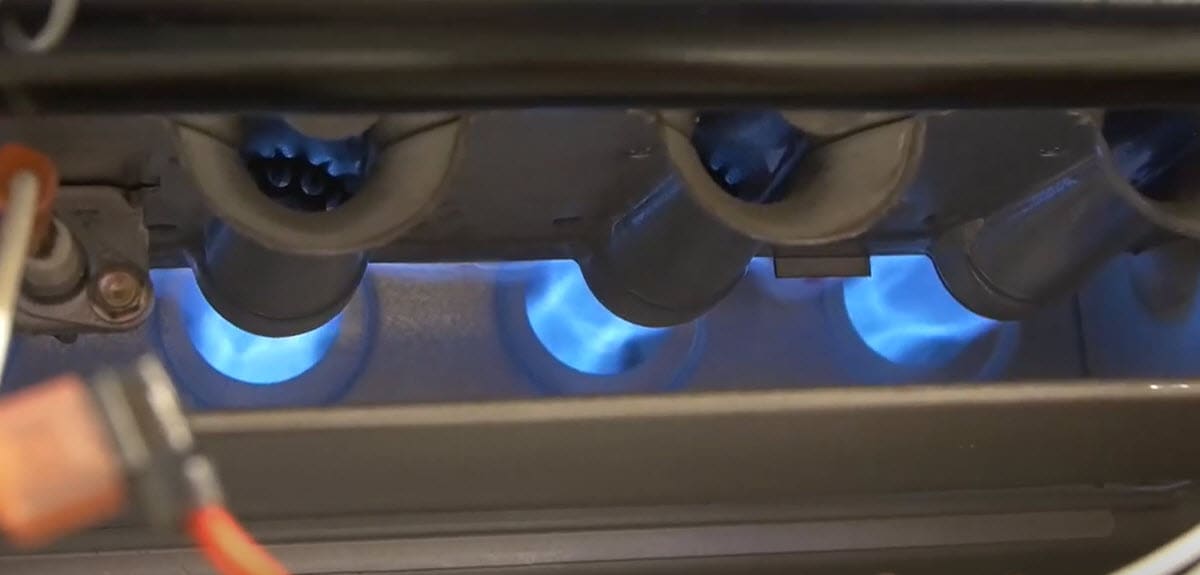
Cost of Gas vs Electric Furnaces in 2025
In most cases, gas furnaces cost several hundred to a few thousand dollars more upfront compared to electric units, but operating expenses and long-term savings vary based on local energy prices, usage, and climate.
One reason for the price differential is that gas furnaces include several components not required for an electric model. Gas furnaces include a gas valve, burners, an ignitor, a flame sensor and heat exchanger not included on an electric model. Venting required for a gas furnace can add gas furnace cost as well.
However, it’s also important to keep lifetime operating costs and your local climate in mind before you decide. Electric furnaces are more popular in southern and southwestern states where heating seasons are shorter and less intense. In northern climates where gas furnaces are more common, heating seasons are longer and temperatures are more extreme. And while costs can vary, fuel costs for heating a home with gas are generally lower than costs associated with an electric furnace.

Find a Carrier Home Furnace Expert
Finding the perfect forced air furnace for your home can be a daunting experience. From finding the right model, to making sure it has the heating capacity to keep your entire home comfortable and the gas furnace installation is done correctly, there’s a lot to consider! That’s why soliciting advice from an expert can be comforting.
Carrier’s natural gas furnace qualified experts can help you navigate through the process. They have the experience and training to assess your home, evaluate your needs, and provide recommendations that make sense for your budget. It’s a choice that can affect your comfort and your wallet for years to come. If you don’t already have one in mind, you can find a Carrier Expert who can help with the gas furnace replacement process and aid in your gas furnace repair needs for years to come.
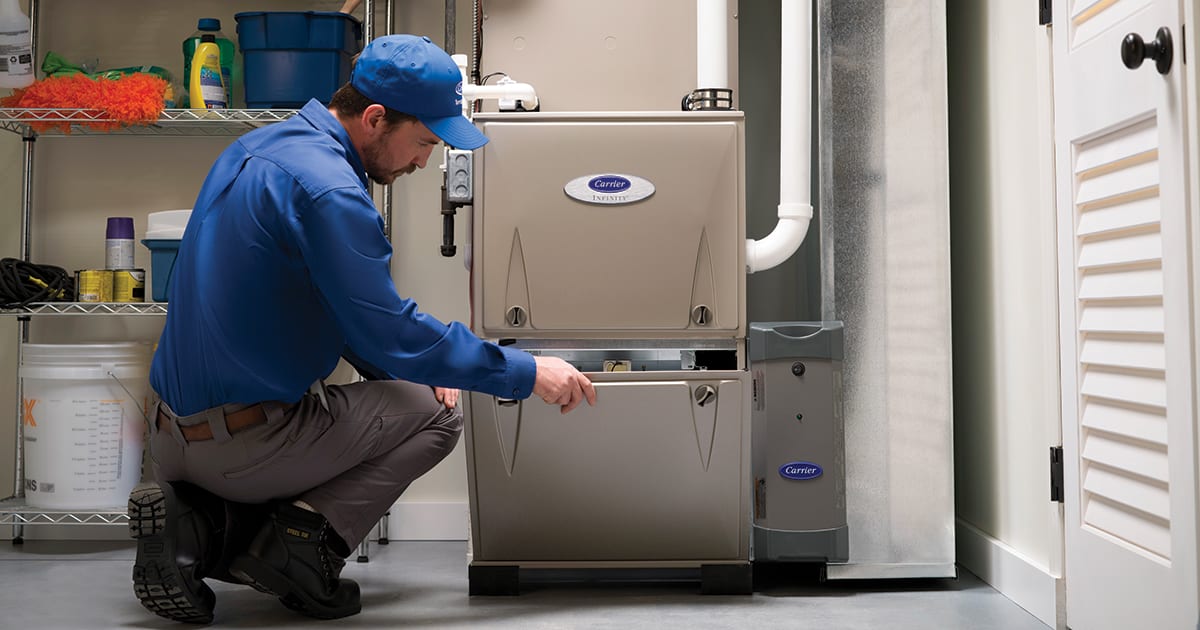
Explore Carrier Furnaces
Choosing a Carrier furnace ensures reliable and efficient heating for your home, with advanced technology that optimizes energy use and enhances comfort. Known for their durability and quiet operation, Carrier furnaces provide consistent warmth throughout the winter while helping to reduce heating costs. Explore Carrier's line of furnaces.
ENERGY STAR® certified. Our highest efficiency and most advanced furnace with up to 98.5% AFUE for premium energy savings with excellent humidity control and premium comfort
ENERGY STAR® certified. Up to 97.0% AFUE for premium energy savings with enhanced comfort features.
All sizes ENERGY STAR® certified. Up to 97% AFUE for premium energy savings with standard comfort features.
Frequently Asked Questions About Gas Furnaces
Learn More About Gas Furnace Topics
- What is a high-efficiency gas furnace and how can it benefit me?
- Learn what to do if there is water dripping from furnace
- Pros & Cons of a Heat Pump vs. Furnace?
- 10 things to consider when buying a furnace
- Learn the causes of a furnace not kicking on
- Discover what to expect with a furnace tune-up
